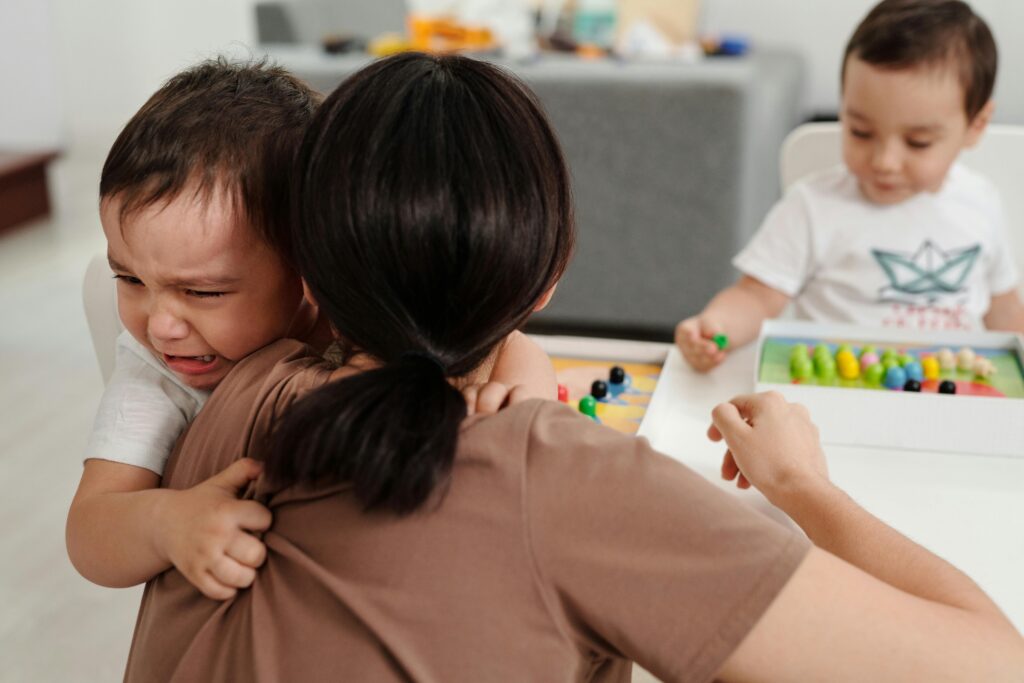Separation Anxiety and Sleep
May 31, 2024

Have you ever wondered if your little one’s separation anxiety is affecting their sleep? If so, you’re in the right place. Today we’re going to chat about how separation anxiety affects sleep and tips to help.
What is separation anxiety?
Basically, separation anxiety occurs when your little one loses sight of you and becomes nervous or stressed. This can happen with infants, toddlers or even older children. It’s considered a normal part of development and a sign of healthy, secure attachment.
We typically see separation anxiety first begin to develop when your little one learns object permanence. This often occurs around 6-9 months. Object permanence means your baby learns that even when they cannot see you, you still exist. This can lead them becoming upset when you are not close by.
Does it affect sleep?
It definitely can! Separation anxiety can look a little different depending on the age of the child; however, it often looks like your little one getting upset when you leave the room or are out of sight. Your infant may be fussy or “clingy.” This means she may cry when you lay her down in the crib and may have a hard time settling for sleep. With a toddler, you may notice short naps, struggling to fall asleep at nap or bedtime, or new wakeups in the middle of the night.
Tips to help
Helping with separation anxiety at bedtime begins with helping your little one become more comfortable with having some space and supervised independent time during the day. Here are some tips to help build that skill:
#1 Connect through one-on-one time before bed
Spend quality one-on-one time with your little one in the evening or during the bedtime routine. Consistency is hugely important so your little one knows exactly what to expect.
#2 Give your little one time to play independently
During the day practice giving your child a chance to play by themselves. You can stay close by. Independent play time during the day increases their comfortability being alone at nighttime.
#3 Enlist other important people in your life to help watch your child here and there.
Having your child spend time with other trusted caregivers increases their comfort with you being gone and teaches them to build relationships with others. It also helps them build trust that you will always return.
#4 Don’t sneak away when leaving
Whether this is at bedtime or leaving your child at daycare, always say goodnight or goodbye and let your child know you will come back. Sneaking away may increase their anxiety around separating.
#5 Create a goodbye ritual
Before you leave, give your child a hug and kiss. Tell them you will come back. Having this simple routine creates trust between you and your child.
#6 Avoid rushing
When getting ready to leave the house for daycare or school, avoid rushing. Rushing may make the transition more difficult. If you can spend a few minutes connecting before the day begins you will be better set up to say goodbye later.
#7 Spend time in your child’s room during the day
During the day, spend time in your child’s room reading or playing together. This way they are familiar with the room and already feel comfortable in the space.
Separation anxiety may be one factor affecting your child’s sleep. If you’d like support or a personalized plan to address separation anxiety at bedtime, please reach out to me. I’d love to help.